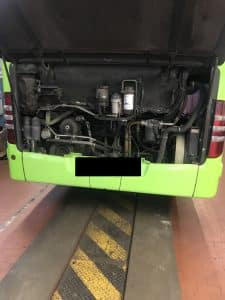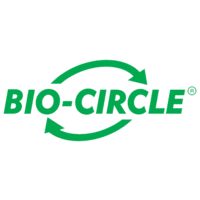Did you know that travelling by coach is already the greenest way to travel around the UK? The average carbon dioxide emissions per passenger per journey are around 1.5 times lower than rail, 5 times lower than air and 6 times lower than car travel. Great hey?
However, whilst this gentle giant mode of transport is green it could be greener still, and the industry is tasked with becoming Net Zero – by 2040. Graham Vidler, Chief Executive of the Confederation of Passenger Transport states, “The coach sector is determined to stay ahead on the journey to net zero.”
To help the industry reach its destination, the taskforce ZECT (Zero Emission Coach Taskforce) was formed in order to understand the best ways in which Net Zero can be achieved via their report ‘The Coach Route Map to Destination Zero.’
Their report sought to identify possible solutions, establish collaborations with other key stakeholders and agree a list of commitments for both the government and the sector that would ensure a workable transition to zero emission technologies. The report outlines three significant areas which will contribute greatly towards the industry’s decarbonisation target:
-
Transitional technologies such as using low carbon fuels – e.g. biodiesel and HVO whilst the industry waits for the development of hydrogen coaches and improvements in electric battery range, along with retrofitting and repowering existing vehicles to electric.
-
Growing operators’ confidence in purchasing zero emission vehicles – via case studies, trials and certification schemes, as well as adjusting the law in relation to axle weight limits – typically zero-emission vehicles are much heavier.
-
Infrastructure to support zero emission coaches – implementing a reliable refuelling network where coaches from any operator are able to refuel regardless of which operator the depot is owned by.
How does BIO-CIRCLE fit into this?
The three areas ZECT has highlighted that will help to achieve net zero can all be supported by BIO-CIRCLE Surface Technology Systems & cleaning liquids, specifically when we take the focus away from the front line of the coach industry – i.e. the coaches themselves – and into the depots. After all, behind every zero emission coach, there needs to be end-to-end zero emission processes at every step of manufacturing, remanufacturing, retrofitting, maintenance and repair.
-
Transitional technologies. As the report states, the main component of transitional technologies is using low carbon fuel as the industry transitions to electric or hydrogen. But let’s look at the cleaning processes in the maintenance and repair of coaches in depots across the UK. There are still some depots that are using solvent-based parts washers and hazardous cleaners to clean and degrease all parts – large and small. By simply switching to BIO-CIRCLE’s aqueous cleaners that are VOC-free or VOC-reduced (meaning very low carbon emissions), operators can begin the decarbonisation process from the workshop and in turn reduce their waste chain, reduce costs, reduce health risks and fire risks – and numerous other benefits. When the zero-emission vehicles are ready, so too will be the depots with their essential maintenance processes future-proofed for net zero. And when coaches no longer use diesel fuels, their engines, parts and exteriors will still require cleaning, and so these changes will still be important and relevant for the future.
-
Growing operator’s confidence in purchasing zero-emission vehicles. By investing in zero or low emission technologies now for other processes within the industry – such as parts preparation and surface cleaning technologies – and seeing that they are just as effective, or even more so than the existing outdated technologies, will only serve to increase confidence in new zero-emission technologies as a whole.
-
Infrastructure to support zero emission coaches. There’s little point in being net zero on the public-facing side of the business without having a zero-emission infrastructure in the background to support it. Whilst the ‘infrastructure’ in ZECTs report refers to the implementation of an effective and accessible refuelling network throughout the UK – of course this is crucial – ‘infrastructure’ can also refer to the smaller processes of coach operation – i.e. the maintenance and repair of coaches and the infrastructure to support this. By making small changes to infrastructure such as switching out brake cleaner now for non-hazardous BIO-CIRCLE cleaners, or replacing stinky solvent-based parts washers with pleasant, aqueous parts cleaners, (meaning no requirement for PPE, specialist cleaning zones, disposal of hazardous waste etc), then the supporting infrastructure, as well as the overall infrastructure will be truly net zero.
Ready to optimise your cleaning processes for Destination Zero? Contact us for your free depot site survey.







